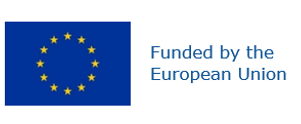Project title: Factors in Home and Environment Language Development (FIHElaD – 101109776)
Main researcher: Aikaterini Pantoula
Αcademic coordinator: Spyridoula Varlokosta
Funding source: European Commission, Horizon Europe (Pillar I: Excellent Science) - Marie
Skłodowska-Curie Actions
Duration: 2023 - 2025
Budget: 153.486,72€
Summary
Intra-European migration has populated the school classrooms of mainstream education in Europe’s
countries with multilingual students. In European primary schools, typical classrooms include bilingual
children of Greek descent who speak Greek as their home language in Germany and bilingual
children of German descent who speak Greek as their environment language in Greece. For these
pupils being competent in both the home and environment language is pivotal for school
achievement. Notwithstanding the large number of studies on the interplay of language systems in
the human mind, the fundamental question of language development in multilingualism has yet to be
addressed sufficiently: How do linguistic and extra-linguistic person-level factors predict the
acquisition of both the home and the environment language in multilingual classroom populations?
The proposed Factors In Home and Environment Language Development (FIHELaD) project
addresses this question from an interdisciplinary approach bringing together multilingualism and
developmental psycholinguistics along with didactics and data science. This project makes
incremental progress towards the goal of advancing the scientific understanding regarding language
acquisition and processing and feeding back into society those answers that inform citizens of the
beneficial state-of-affairs of multilingualism. FIHELaD is a comprehensive project examining how
linguistic and extra-linguistic factors shape the parsing routines of grammatical phenomena with
complex syntactic structure, specifically focus sentences, in the home and environment language of
Greek-German bilingual children. To predict future language development trajectories via statistical
modelling, FIHELaD triangulates a unique experimental methodology by combining gaze and
pupillometry eye tracking data with classroom-based and baseline experimental observations.
General nformation: For information about project communication have a look at the researcher’s
success story in the website of the Funding Support Office of the University of Athens (NKUA) and of
the Horizon Europe in Greece.
